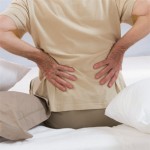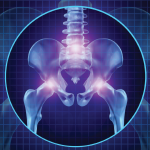Of the 67 patients, 23 were randomized to receive standard care (i.e., whatever treatments they were already receiving for back pain and fatigue), 22 to relaxing acupressure (i.e., applying pressure to five acupoints for three minutes per point) and 22 to stimulating acupressure (i.e., applying pressure to six acupoints for three minutes per point). Trained acupressure educators taught patients in the acupressure groups how to self-administer the technique.
To assess the efficacy of acupressure, investigators compared the baseline scores of fatigue, pain and sleep quality of patients in all three groups to their scores after six weeks of treatment. The Brief Fatigue Inventory was used to measure fatigue, the Pittsburgh Sleep Quality Index to measure sleep quality, the Brief Pain Inventory to measure pain and the Roland Morris Scale to measure disability.
Findings
After controlling for age and sex, the study’s only significant finding was a significant reduction in fatigue in patients using stimulating acupressure compared with patients receiving standard care. Fatigue was reduced by 26% in these patients, decreasing from a mean 4.3 at baseline to 3.2 at six weeks.
When looking at pain scores, patients in both the relaxing and stimulating acupressure groups experienced reduced pain (35% and 36%, respectively) from baseline scores to scores at six weeks (4.3 to 2.9 for relaxing acupressure; and 4.5 to 2.9 for stimulating acupressure).
The study found no differences between the acupressure groups and usual care in sleep quality or disability.
Implications for Care
Seeing these as preliminary results for the potential benefit of acupressure for chronic low back pain, Dr. Murphy says she and her colleagues are planning to conduct a larger study.
“It’s important to determine if self-administered acupressure is effective in a larger group of people with chronic back pain and also to examine ways to best integrate effective and safe treatments, such as this, into clinical management,” she says.
Weiqing Ge, PT, DPT, PhD, professor of physical therapy, department of physical therapy, Youngstown State University, Youngstown, Ohio, who reported the efficacy of acupressure with physical therapy to reduce pain, increase function and decrease disability in a single system study of a patient with chronic low back, says the study by Murphy et al. confirms his research. The new study shows the efficacy of acupressure to reduce pain in patients with chronic low back pain with the additional information on its efficacy to reduce fatigue.2


